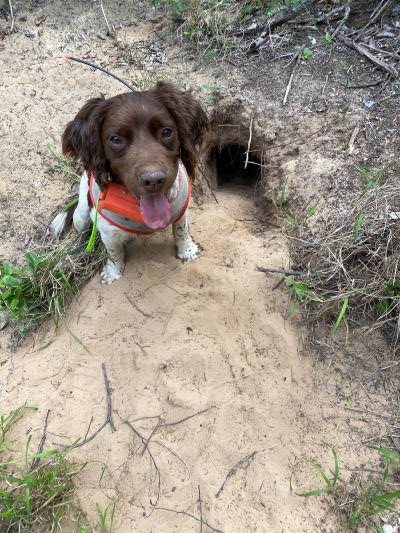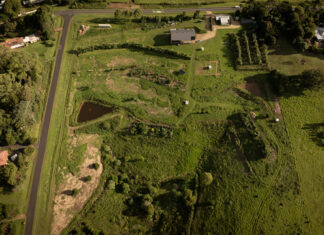Rocky the conservation dog will be sniffing out fox dens this month as part of an expanded Coastal Fox Control Program.
Rocky and his handler Tom Garrett will survey coastal areas south of the Maroochy River to detect fox dens between September 10 and September 27 after working in areas north of the Maroochy River.
Sunshine Coast Council Environment Portfolio Councillor Maria Suarez said the program had achieved extremely positive results during its six years.
“In order to carry out his important work, Rocky has been granted an exemption to enter a prohibited zone in an effort to protect our native wildlife,” Cr Suarez said.
“This control program plays an important part in protecting our endangered and threatened species and we’re seeing more native fauna since the program started in 2015.
“More than 9100 native small mammal species, 25,200 bird species, 8540 reptile species including turtles and 560 native macropods have been saved since 2015 according to fox diet studies conducted on the Sunshine Coast.
“We cannot do this work without our community. We rely on you to report fox sightings and we appreciate your continued support to protect our native species.”
The control program reduces fox predation on vulnerable populations of native species, such as water mice, Eastern ground parrots, and endangered green and loggerhead turtles at the egg and hatchling stage.
Once the area south of the Maroochy River is complete, survey work will extend to coastal bushland areas from Maroochy River to Peregian Springs from October 10 to November 26.
Sunshine Coast Council, Queensland Parks and Wildlife Service, Coolum and North Shore Coast Care and Noosa Council will work together to carry out the program in the northern section of the region.
More information about the program is available on council’s website.
Residents near the control areas will be notified.
Control areas included in the program will be clearly identified by signage at all beach entrances. To keep your pets safe, please ensure they do not roam into control areas.
If you spot a suspected fox den in the program area, report it to council on 5475 7272.








